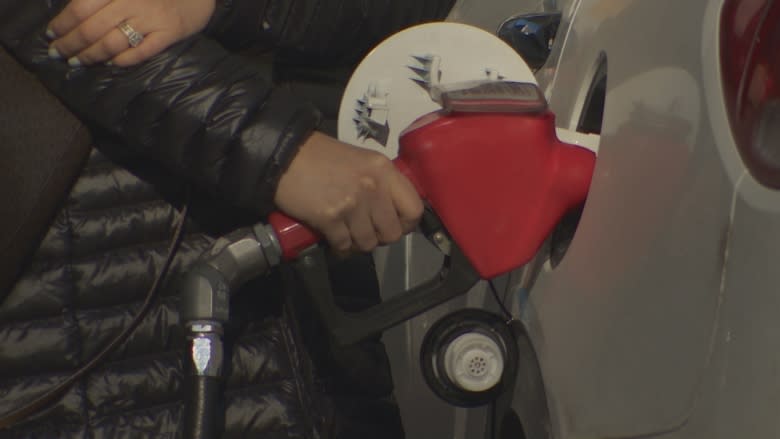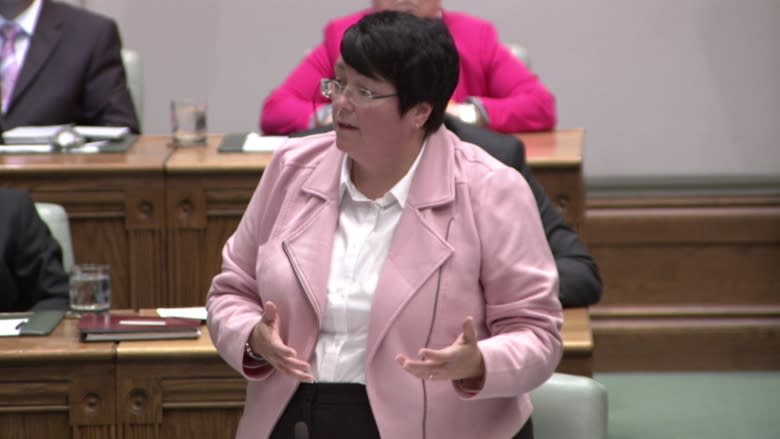Gas tax, tuition freeze and energy efficiency: How the budget might affect you
When it comes to some of the basic costs of living in Newfoundland and Labrador, don't expect many changes from this year's provincial budget.
Finance Minister Cathy Bennett said last year that the 2017-18 budget would introduce no new fees, taxes or increases —and that is indeed the case.
Keeping a tuition freeze for post-secondary students, making your home more energy efficient, and cutting down the tax on gas are some of the highlights.
Compared to the various taxes, fees and increases in last year's budget, this one seems mild.
Gas tax going down, and down again
The 16.5 cent-per-litre additional gas tax that came into effect last year is on its way down.
It will come down to eight cents as of June 1, and then will be reduced again in December.
By the end of the year, that new gas tax will be four cents a litre.
Bennett said last year's promise that the gas tax was temporary is being kept, after government got a bit of breathing room to get through its first budget.
Government will review the remaining four cents in the 2017 fall fiscal update.
The cutting of the gas tax will mean the loss of about $60 million in government revenue.
Meanwhile, as far as the federal carbon tax goes, the province is not required to figure that out until next year, so it will be factored into the 2018-19 budget. But it will be a separate discussion, Bennett said.
Home energy efficiency
Government says it will spend $5 million over three years for a new home energy savings program for people with low incomes.
Those grants will pay for cost-effective upgrades for qualifying households to improve energy efficiency.
The province will also offer a low-interest financing rate for various home upgrades.
Managing electricity rates, post-Muskrat
Electricity rates have long been expected to nearly double when the Muskrat Falls hydroelectric megaproject eventually comes online.
The Consumer Price Index (CPI) is forecasted to increase in 2020 by 3.8 per cent, because of increased costs attributable to Muskrat Falls electricity generation. That does not include any rate management efforts.
That's something government is trying to avoid in this budget.
Nalcor Energy, the Crown corporation in charge of managing the project, has been directed to find $210 million to help lower electricity rates, starting in 2020-21.
"Our vision for the province does not include the doubling of electricity rates," Bennett said in her budget speech.
"It is not acceptable for residents to pay excessive electricity rates."
For the parents …
The province is adding another $2 million to the Child Care Subsidy program in order to reduce the cost of daycare for families with low or middle incomes.
In addition, it will increase the Early Learning and Child Care supplement by $1.3 million.
Early childhood educators will also have an increase in the supplement of $1 an hour.
Full-day kindergarten will be getting another $13 million to continue. Inclusive education will get $120 million overall, with an additional $500,000 to increase student assistant hours.
Post-secondary students
Students at Memorial University can expect their tuition rates to stay the same.
While MUN's operating budget has been cut by more than $3 million, government says it has budgeted for the university to maintain the tuition freeze.
Advanced Education Minister Gerry Byrne said the tuition freeze will be for Newfoundland and Labrador students, both undergrad and graduate.
That means MUN will have to find savings elsewhere.
But changing student assistance programs will mean a change in how students get their money.
Students can now apply for student assistance and there will be more federal funding available. If that funding isn't enough, then the provincial program will come in.
But that might change how much students have to pay back, and when.



